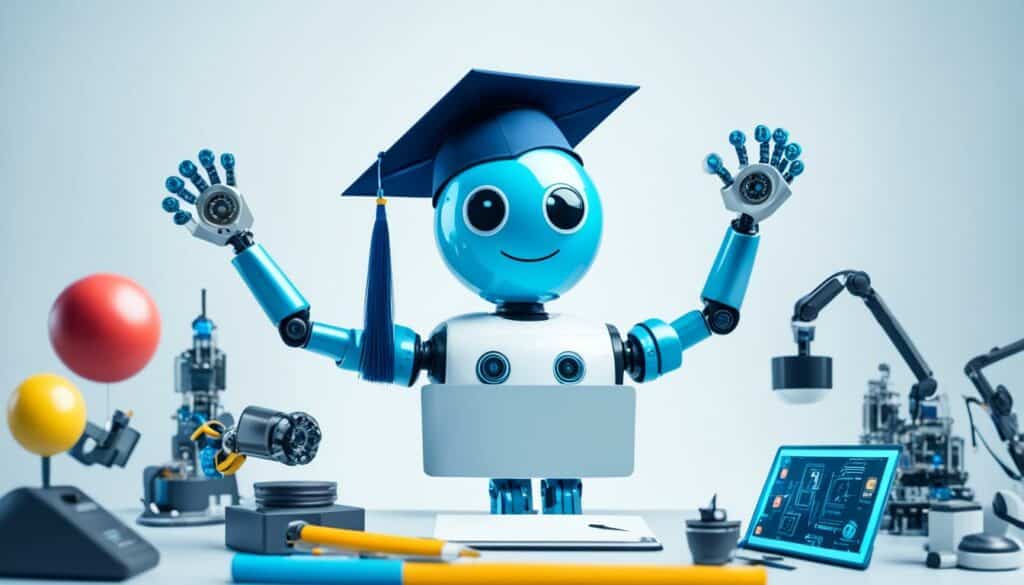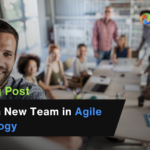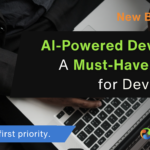
The field of software engineering is experiencing a remarkable transformation, thanks to the advancements in artificial intelligence (AI). AI is revolutionizing the field of software development, enabling faster and more intelligent processes that push the boundaries of creativity. The influence of AI has had a significant effect, reshaping the daily tasks of software engineers and propelling the industry toward new and inventive possibilities. In a rapidly evolving field like software engineering, keeping up with AI trends is essential for achieving success.
AI programs and tools are empowering professionals with capabilities that simplify complex procedures, optimize code with exceptional accuracy, and embark on
AI applications are revolutionizing various industries. Similar to a systems analyst, software engineers are witnessing a significant transformation in their field due to the advancements in AI. These changes not only impact their current practices but also have the potential to reshape their future roles and responsibilities, aligning with the rapid evolution of technology.
Important lessons learned
- The role of AI in enhancing coding efficiency indicates a shift towards faster software innovation and deployment.
- The advantages of automation provided by AI span from minimizing errors to simplifying intricate project management.
- With the help of AI tools, software engineers can experience a significant boost in productivity, enabling them to dedicate more time to strategic and insightful tasks.
- With the ever-expanding skill set of software engineers and the integration of AI, the industry is now primed for the development of groundbreaking AI applications.
- Having a grasp on AI systems and seamlessly incorporating them into software development has become essential for businesses looking to maintain a competitive edge.
- The influence of AI is transforming the software lifecycle, establishing fresh benchmarks for innovation, quality, and user-centric design.
AI and ML: Changing the Face of Software Development
The software development industry is experiencing a significant transformation due to the rapid progress of machine learning (ML) and artificial intelligence (AI). In today’s digital era, where complexity is on the rise and human involvement is diminishing, a new path is being forged for a growth process that is adaptable, dynamic, and smart. Let’s examine the sound paradigms that artificial intelligence is establishing in the software development industry.
Automation of AI Performance and Code Creation
Automated code creation is a crucial element of generative AI, which is causing significant changes in the software development industry. Products like DeepCode and GitHub Copilot utilize artificial intelligence to automate coding tasks, resulting in significant time savings and improved accuracy and productivity. With the efficiency of this optimized code approach, tech companies are attracted to the idea of implementing more ambitious go-to-market strategies.
Better Bug Recognition with Machine Learning
The process of identifying and resolving issues in software development is undergoing a transformation due to the advancements in machine learning. In today’s world, solving problems in real-time is no longer just a far-fetched idea, but a tangible achievement thanks to cutting-edge machine learning algorithms. These algorithms have the ability to analyze complex code and pinpoint any irregularities with remarkable accuracy. This ability has the potential to revolutionize the way operations are carried out, enhancing the stability and reliability of software.
Predictive Analytics: An Active Development Strategy
Embracing the foresight provided by predictive analytics empowers development teams to proactively address issues and customize their products to meet user demands. With the advancements in AI technology, software development is now equipped with the ability to anticipate future industry needs. This enables us to proactively address potential issues and prioritize user experiences in our engineering objectives.
AI and ML are transforming the software landscape by utilizing innovative tools and procedures, rather than simply conforming to it. The labor- and resource-intensive project has transformed into an innovative, precise, and intelligent artificial intelligence (AI) software development process.
| Aspect | Conventional Software Development | Artificial Intelligence-Powered Software Development |
|---|---|---|
| Encoding | labor-intensive, prone to error, and manual | Low error rate, effective, and automated |
| Finding Bugs | a lengthy, sequential procedure | Faster resolution in real-time |
| Analytics for Predictive | little planning and only reactive tactics | superior anticipatory and proactive development |
| User Interface | static, universally applicable | dynamic and tailored |
| Project Organizing | Traditional, manual supervision | Predictive, AI-optimized planning |
A paradigm shift in software engineering with AI
The integration of AI in software engineering is driving a remarkable transformation in the field. This movement embodies a deep-rooted commitment to the core principles that have shaped the evolution and implementation of software, transcending mere technological progress. With the integration of AI throughout the development process, engineers and developers are revolutionizing their approach to solving complex problems and generating innovative solutions.
The AI capabilities are at the heart of this groundbreaking transformation, shaping the future of the industry. The impact of this can be seen in the realm of automated testing, advanced bug detection, and areas that have traditionally relied solely on human judgment, where it has greatly improved precision. Developers and engineers are embracing AI advancements, which free up their time for more creative work.
Every stage of the process is being reconsidered with a focus on AI development. In today’s fast-paced technological landscape, software engineers must adapt their problem-solving approaches to leverage the power of intelligent algorithms and their self-governing properties. AI can greatly speed up the software industry’s transition from development to market readiness, offering unprecedented levels of efficiency.
- The ability of AI to speed up the coding process has made it so that producing cleaner, more efficient code is now expected rather than an impossible goal.
- AI’s contribution to project management creates a symphony of productivity and inventiveness by providing teams with strong forecasting, resource allocation, and risk assessment capabilities.
- Developers can introduce a level of personalization that was previously limited to human intuition by using AI’s analytical skills to examine user data.
Ultimately, the impact of AI on software engineering can be seen as a transformative global shift that raises questions about the role of engineers in this AI-driven era.
| Area of Project Management | Prior to AI Integration | Following AI Implementation |
|---|---|---|
| Timetable Prediction | utilizing heuristic approximations and historical data | Improved by AI algorithms and predictive analytics |
| Evaluation of Risk | Depending on human knowledge and experience | AI-powered likelihood forecasts and preventative actions |
| Allocation of Resources | Adjustments that are static and frequently reactive | Data-driven and dynamic resource optimization |
| Automation of Tasks | restricted to preset macros and scripts | broad application of AI to learn from and automate repetitive jobs |
| Group Cooperation | reliant on meetings and manual updating | enabled by AI-optimized, real-time communication routes |
AI-Powered Innovations and Their Real-World Uses
Just as software engineering has evolved, the introduction of artificial intelligence has brought about a remarkable transformation in the process. This integration represents a significant shift in the technology landscape, indicating the direction in which software development is heading. There are numerous applications of AI in software engineering, but a few notable advancements have emerged for their practicality and game-changing possibilities.
These advancements are revolutionizing how software tackles real-world issues, improving everything from customer support to the efficiency of backend operations. Let’s delve into the practical uses of AI-driven advancements, such as natural language processing (NLP) and AI resource management tools. These technologies harness the power of AI to unlock new possibilities for more advanced software ecosystems.
Natural Language Processing’s Function in User Interactions
NLP exemplifies how advancements in AI and machine learning are revolutionizing the way individuals engage with technology. Efficient human language understanding and processing is a goal that NLP helps software achieve, allowing for intuitive and seamless user-software communication. Understanding context, sentiment, and intent is crucial, going beyond just the words themselves. These exchanges demonstrate the impressive capabilities of AI and underscore its significance in enhancing the user experience.
AI-Based Resources Management Tools
AI solutions that assist software systems in efficiently managing resources are truly game-changing. Machine learning algorithms are at the heart of this functionality, analyzing trends and forecasting resource requirements for optimal resource allocation. AI technologies have the ability to predict future needs and allow engineers to take proactive actions instead of reactive ones, going beyond traditional resource management. This leads to software that operates with optimal efficiency and seamlessly adapts to fluctuations in user demand.
| AI Innovation | Advantages | Useful Applications |
|---|---|---|
| Natural Language Interpretation | Improved comprehension of user attitude and purpose | Voice-activated assistants, chatbots that are intuitive, and automated customer support |
| Tools for AI Resource Management | Predictive analysis to improve the distribution of resources | Optimizing system maintenance and cloud computing with dynamic scaling |
These innovative examples demonstrate the practicality of artificial intelligence (AI) applications in software engineering. They are revolutionizing our approach to software and going beyond mere theoretical experiments. As technology advances, the potential for AI to enhance software environments and make them smarter, more adaptable, and more efficient will continue to expand. Embracing these technologies today is a wise decision, as it paves the way for a future where AI-driven software development becomes the standard.
Platforms and Instruments for AI-Powered Software Development
Software engineering has been revolutionized by the advancement of AI platforms and frameworks, making it a common practice in today’s world. These cutting-edge technologies have completely transformed the way software developers work. These advancements promote creativity and problem-solving in the industry by empowering developers to build AI systems with greater accuracy and effectiveness.
Let’s delve into the fundamental aspects of this technological revolution: from cloud-based AI development platforms that are making AI more accessible to AI frameworks that are essential for machine learning, to the cutting-edge field of neural architecture search tools that are transforming our understanding of AI optimization.

All-purpose Frameworks for Machine Learning
Machine learning frameworks like TensorFlow and PyTorch have become widely used and are essential for many AI projects. They enable software engineers to easily develop AI systems with minimal effort and faster results. These tools provide the necessary flexibility and capabilities to explore various AI applications, such as computer vision and natural language processing.
Platforms for AI Development on the Cloud
Cloud AI development platforms, like AWS SageMaker, Google Cloud AI, and Azure Machine Learning, have provided developers with access to high-performance computational resources whenever they need them. These platforms simplify the process of scaling and deploying AI models, allowing teams to focus on innovation rather than infrastructure.
Artificial Intelligence for Programming and Software Development
In addition, AI is revolutionizing the coding process. Programming conventions are evolving due to the adoption of GPT-4 by platforms such as GitHub Copilot. This advanced tool has the ability to generate entire functions and provide helpful code snippets, revolutionizing the way developers work. Software engineers can greatly benefit from the advancements in artificial intelligence (AI) technology. This is because AI can significantly reduce error rates and greatly improve the efficiency of software creation.
Pre-Trained Platforms and Models
Pre-trained AI models have made it incredibly convenient to tap into the latest advancements in AI technology. Services such as Hugging Face and Model Zoo are playing a crucial role in accelerating the AI adoption curve. These platforms empower developers to leverage cutting-edge machine learning capabilities, tailor them to specific applications, and build upon them for further development.
Tools for Searching Neural Architecture
Neural architecture search (NAS) technologies aim to simplify the challenging task of discovering the optimal neural network for a specific objective. Efficient AI solutions are now more accessible thanks to software like Google’s AutoML and open-source libraries. These tools simplify the process of finding high-performance neural network structures.
These platforms and technologies exemplify the progress that defines AI for software developers and are fundamental to the accessibility and utility of modern AI for technology innovators. Software development has a promising future as human creativity and intelligent algorithms collaborate increasingly.
Enhancing Software Quality with AI’s Predictive Skills
Integrating predictive AI into software engineering domains has proven to be crucial in enhancing software quality. These advanced features promote a forward-thinking approach, enabling developers to anticipate potential issues and upcoming trends. Engineers can leverage AI predictive analytics to deliver solutions that are both innovative and dependable, ensuring security as well.
AI plays a crucial role in enhancing software quality, especially when it comes to detecting vulnerabilities in advance and predicting maintenance needs. This shift is mainly motivated by the utilization of advanced AI algorithms, resulting in software systems that are not only highly efficient but also continuously monitored for potential risks and protected at all times.
With the help of AI-powered software development, businesses can now effectively align their products with customer expectations and market needs. This enables them to swiftly and precisely adapt to any modifications. Flexibility is crucial in a highly competitive technological market where user experience and relevancy play a vital role in setting oneself apart.
Here are some innovative ways AI is enhancing various aspects of software quality:
- AI is utilized in predictive maintenance to detect and proactively address system issues by analyzing software operating patterns.
- To effectively detect and eliminate security threats, advanced machine learning models are constantly trained.
- Enhancing the User Experience: Predictive AI optimizes software behavior to align with user preferences, resulting in heightened satisfaction and engagement.
AI expands the range of analytics by providing practical insights that empower companies to enhance software development processes and refine their strategy. Software deliverables need to be adaptable to changing trends and user feedback to stay innovative and relevant.
| Measurement | Advantage | AI-Powered Remedy |
|---|---|---|
| Error Mitigation | reduces the possibility of flaws | Automated Evaluation of Code |
| Improvement of Security | detects and immediately reduces threats | Constantly keeping an eye on security |
| User Interface | adjusts for customized interfaces based on user behavior | Analysis of Behavior and Customization |
| Efficiency of Operations | maximizes resource usage and performance | Forecasting Workload and Allocating Resources |
| Predictability of Maintenance | Prevents and anticipates system outages | Predictive Upkeep Techniques |
In today’s rapidly evolving tech landscape, the quality of software solutions has seen a remarkable boost thanks to the advancements in AI and software engineering. With the expertise of a computer systems analyst, AI ensures that software not only meets functional requirements but also excels in performance, safeguards against security threats, and adapts to user expectations. The future of AI-powered software development looks incredibly promising as we harness the power of these technologies. It will be marked by outstanding quality, top-notch security, and a relentless focus on user-centric innovation.
Software Engineers: Getting Ready for an AI-Powered Industry
Efficient utilization of AI technology by engineers will be crucial for the future of software engineering. With the increasing potential of AI, it is crucial for software developers to adapt and complement these advanced tools. Software engineers now have numerous opportunities in the field of artificial intelligence (AI), particularly for those who excel at combining human and AI software engineering skills. The success of integrating engineers and AI hinges on the industry’s ability to provide workers with the necessary skills for AI in software and the required training for AI adoption.
Competencies and Education for AI Adoption
In order to effectively prepare for the advancements of an AI-enhanced world, it is crucial that education and skill development adopt a multimodal approach. One must prioritize acquiring knowledge about cutting-edge technologies, understanding the constraints of AI, and employing problem-solving approaches centered around AI. Thus, software developers should:
- Delve into the intricacies of data science and machine learning to gain insights into the essential techniques that power the creation of AI systems.
- Incorporate AI-specific development tools and platforms into their technical repertoire. These advancements are constantly reshaping the software engineering landscape.
- Embrace a mindset of continuous learning and professional growth to keep pace with the rapid advancements in AI technology.

The Value of an AI-Related Skill Set for Contemporary Development
Having an AI-focused skill set is now crucial instead of being merely advantageous. Engineers who embrace AI will be at the forefront of their field, capable of driving innovation and attaining operational excellence. The modern software developer must:
- Develop a strong grasp of deep learning, neural networks, and natural language processing to keep pace with the ever-evolving advancements in artificial intelligence.
- Always prioritize ethical AI development processes, recognizing their crucial role in upholding industry standards and meeting public expectations.
- Stay informed about the legal implications of artificial intelligence and ensure compliance with privacy and data protection regulations.
Understanding the ever-evolving software development industry is crucial, as it requires engineers to seamlessly integrate AI capabilities into their workflows to stay ahead in the workforce. Training for the adoption of AI demonstrates a forward-thinking approach that ensures software developers remain crucial in an AI-powered future.
How AI Can Help Simplify the Software Development Lifecycle
AI integration has proven to be a powerful tool for development teams to enhance the software development lifecycle. With the integration of AI into software lifecycle phases, the software industry is undergoing a remarkable transformation, leading to increased productivity and efficiency across the board.
AI has the incredible potential to empower developers to effortlessly manage projects from start to finish, including planning, coding, testing, and deployment. With the expertise of a network architect, AI can analyze past performance data, allowing development teams to proactively address potential obstacles and ensure a smooth project delivery process from start to finish.
With the help of artificial intelligence (AI), developers can now access advanced tools that enable them to better manage resources and track progress throughout the development lifecycle. AI has the ability to identify patterns in data, allowing for the early detection of potential risks and the prompt implementation of solutions to mitigate them. This proactive approach significantly minimizes the likelihood of risks becoming a reality.
AI expedites the software development process by converting intricate data into practical insights, guaranteeing that projects are finished promptly and within the allocated budget.
In addition, AI fosters a team environment that promotes enhanced communication. AI fosters a collaborative team culture that enhances workflow and elevates software standards through constant updates and communication with all stakeholders.
Artificial Intelligence (AI) is a technology that has the potential to turn groundbreaking ideas into real-world results. It signifies the dawn of a new era in software development, characterized by unprecedented intelligence and agility.
| Stage of the Software Development Lifecycle | Prior to AI Tasks | Activities Following AI Integration |
|---|---|---|
| Organizing | determining needs by means of manual gathering. | AI-powered requirements collection and evaluation. |
| Encoding | Manual coding combined with iterative testing and compilation. | AI-assisted tools for live error correction and effective code generation. |
| Testing | manual creation and implementation of test cases. | AI algorithms for the automated creation and execution of test cases. |
| Implementation | releases on a schedule determined by manual checks. | AI-powered predictive analysis and monitoring enable continuous deployment. |
| Upkeep | regular reviews and modifications in response to user input. | AI-powered predictive maintenance that analyzes user activity and receives real-time updates. |
The industry is leading the way in a major technological advancement as AI integration becomes increasingly intertwined with the modern software development lifecycle. This advancement not only enhances the effectiveness of the development process but also suggests a future where software innovation will reach its peak through the seamless integration of human creativity and AI’s analytical abilities.
In summary
The industry is on the cusp of a major shift as Artificial Intelligence makes its way into software engineering—the dawn of the AI revolution. This cutting-edge phenomenon embraces the wave of innovation tailored for the digital era while prioritizing efficiency, excellence, and user-centric product development. With expertise in artificial intelligence, we are compelled to tackle challenges in software engineering such as data privacy, the growing talent gap, and security with careful consideration and strategic measures. In order to fully harness the potential of AI, it is crucial for organizations and developers to wholeheartedly embrace its groundbreaking capabilities and carefully contemplate the ethical implications it entails.
Using AI to Drive Software Engineering Revolution
Embracing automation, predictive analytics, and the advancements that software developers can offer with artificial intelligence, the IT community is at the forefront of progress and responsibility. Although there are obstacles to overcome when implementing these technologies, the advantages provide a wider range of adaptable solutions in a landscape where artificial intelligence seems promising. Embracing and applying AI-first development methodologies reflects a dynamic and forward-thinking software engineering culture that thrives on constant innovation and a bold leap into the future.
Imagining AI-Integrated Software Development’s Future
AI-powered software engineering is on the brink of a thrilling era of possibilities. It brings forth an era characterized by collaborative efforts driven by AI, innovative remote workspaces, and enhanced cybersecurity through the vigilant monitoring of machine learning. The integration of AI with software development is a significant shift in the predicted horizon, emphasizing the measurable impact of intelligent automation rather than a temporary trend. As we progress, we envision an AI future that is adaptable, responsive, and attuned to the evolving needs of professionals and users.





